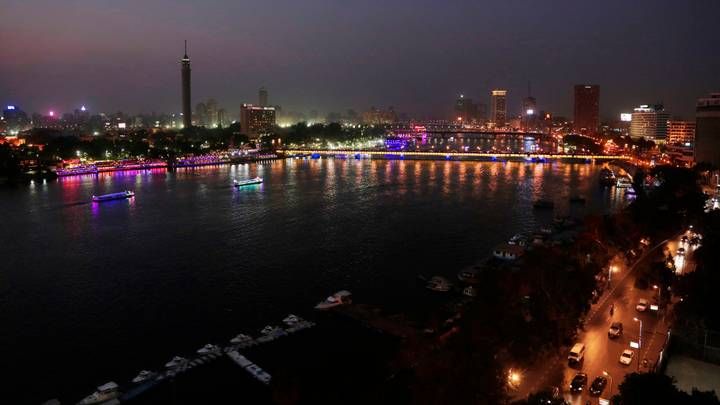By Fauziya Ali
Recently, at a sunlit co-working space in Nairobi, I watched 23-year-old Claudine type lines of Python code into her laptop, her focus unwavering while mentors moved between rows of students.
What caught my attention was not just the code, it was the quiet confidence in the room, the energy of women deeply engaged in building something bigger than themselves.
This is one of many powerful impressions I have carried from visiting tech hubs across the continent, where African women are not just adapting to the digital age—they are actively shaping it.
Claudine is part of a new cohort of women participating in initiatives designed to train African women in artificial intelligence and cybersecurity.
For her, this is more than a skill set. It is a lifeline.
Across Africa, I have met women who have found economic opportunity in digital outsourcing such as customer service, data labelling, and transcription.
These flexible and remote roles have provided vital income in communities where formal employment is often limited or unavailable. But a quiet shift is underway.
According to findings presented at the Global AI Summit in Kigali and reported by the Associated Press news agency, automation is poised to disrupt exactly these roles.
The impact will not be evenly felt. Women, particularly those in the digital economy, face disproportionate risk.
Claudine’s story raises a bigger question I often reflect on: as Africa embraces the fourth industrial revolution, will AI widen the gap for women or help close it?
There are signs of hope.
Microsoft, for example, has committed to training one million South Africans in AI and cybersecurity by 2026, according to Reuters.
And in labs and policy circles across the continent, African scholars are leading important conversations about ethical AI governance—conversations that must continue to center women.
Beyond the continent, there are models worth watching.
The development of DeepSeek R1, an advanced AI model built for just 5.6 million dollars, has become a case study in how powerful systems can be developed outside of Silicon Valley.
A recent Carnegie Endowment briefing highlighted its potential for emerging markets, suggesting that locally relevant AI does not have to come with a billion dollar price tag. Africa’s challenge is not ambition or talent—it is access.
But even that is beginning to shift. The deployment of Starlink satellite internet in rural regions is bringing thousands online for the first time.
That connectivity, paired with AI tools, is diagnosing crop diseases on Kenyan farms and delivering personalised learning in Ethiopian classrooms.
The future is arriving. It just needs to arrive for everyone.
Still, technology alone is not enough. Inclusion requires intent.
Researchers and advocates have long warned about algorithmic bias and how systems can unintentionally replicate the same exclusions we have spent decades trying to undo.
For African women, whose realities are often missing from training datasets, the risks are real.
That is why I believe our investments must go beyond infrastructure. We need to invest in people.
Governments, companies, and civil society must work together to fund education, strengthen regulatory frameworks, and embed gender equity in every phase of AI deployment.
But this is not only about jobs and economics. It is also about security.
When women lose digital livelihoods to automation, the fallout is more than financial.
I have seen how economic instability can ripple into vulnerability, creating openings that conflict actors and extremist groups exploit.
In fragile regions, women who cannot sustain income become more susceptible to recruitment, radicalisation, and unrest. Empowering them with future ready skills is not just good policy. It is a form of peacebuilding.
As women engage more deeply in the digital economy, their safety must be prioritised.
I have spoken with women who have experienced cyber harassment, surveillance, and data breaches, often without recourse.

Gender sensitive digital security frameworks are essential to ensure that online participation does not come at the cost of safety or dignity.
AI is also increasingly embedded in national security systems such as border control, surveillance, and predictive policing.
But these systems rely on data sets that often do not reflect African realities, especially not those of women.
Facial recognition technologies, for example, misidentify women of colour at disproportionately high rates.
Inaccurate AI systems do not just make mistakes. They carry real consequences: wrongful surveillance, exclusion, even rights violations.
That is why ethical guardrails are nonnegotiable.
We need inclusive data, transparent algorithms, and gender aware testing protocols built into every national AI strategy.
Without them, the very systems meant to protect us could instead cause harm.
There is also a role for AI in peacebuilding itself. Studies show women are crucial actors in preventing conflict and sustaining peace.
By training women in AI and digital storytelling, we give them tools to counter extremist narratives, participate in policymaking, and contribute to social cohesion.
I have seen the power of women shaping narratives, using digital platforms to amplify community voices and challenge the roots of division.
Back in Nairobi, Claudine smiles as her script compiles. She may not see herself as part of a revolution, but she is.
So are millions of women across Africa who are learning, building, and leading. The future of AI on this continent is not a distant prospect.
It is already here, being coded line by line in co-working spaces, classrooms, and living rooms.
If Africa’s AI future is to be one of empowerment, inclusion, and peace, it must be written with women not as afterthoughts but as architects of what comes.

The author, Fauziya Ali is the President of Women in International Security Horn of Africa (WIIS-HoA). She is an expert on Human Security, Gender and AI. X account. @FauziyaAAli
Disclaimer: The views expressed by the author do not necessarily reflect the opinions, viewpoints and editorial policies of TRT Afrika.



















